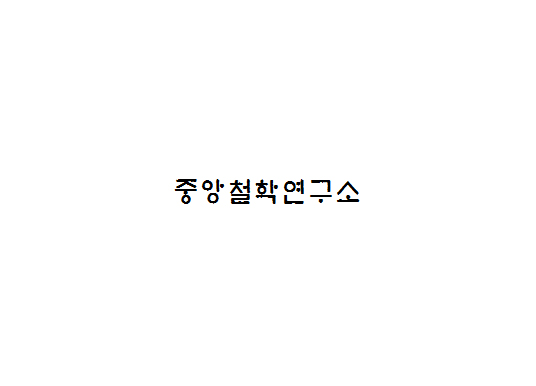주자의 “오여점야(吾與點也)” 해설에서 요순기상(堯舜氣象)의 의미
Zhuxi’s explanation of “Confucius’ recognition of Zengdian” and the Ethos of YaoShun
논어 「선진편」에 공자와 제자들의 대화가 있다. 다른 제자들이 여러 벼슬을 하고 싶다는 뜻을 밝힌 것과 달리, 증점은 “봄옷을 갖춰 입고 어른 아이 모여 바람 쐬고 놀러오겠다”는 말을 하자, 공자는 “오여점야(吾與點也)(나는 증점 편이다)”고 말했다. 이에 주자는 많은 분석을 하면서 깊은 의미를 부여한다. 주자는 공자의 찬동으로부터 “증점이 천리유행(天理流行), 각득기소(各得其所)의 경지를 엿본 것이고”, 증점의 뜻이 “성인의 뜻과 같으며”, “천 길 높은 곳으로 비상하는 봉황과 같다”고 했고, “증점이 도리(道理)의 대원(大原)을 통찰했고, 우리의 모든 일상의 생활 속에 천리가 유행함을 통찰했다”며, 그런 통찰이 곧 요순기상(堯舜氣象)이라고 해설했다.
후대 학자들은 공자가 “아아 탄식하면서(喟然歎曰)” “오여점야”라고 말했다는 사실에 주목한다. 즉 제자 증점의 말에 어떤 위대한 내용이 있었다면 탄식하지 않고 찬탄했을 것이라고 지적한다. 공자가 증점의 말에 공감을 표한 것은 도가 행해지지 않는 당시 현실을 ‘한탄’한 것이었지, 증점이 진리를 통찰했기 때문에 나온 ‘찬탄’이 아니었다고 했다. 요컨대 음풍농월에 불과한 증점의 뜻을 주자처럼 ‘요순기상’으로 과대 포장함은 자기도 모르게 이단에 빠져들게 만드는 화근(厲階)이 된다고 우려했다. 증점의 말에서 “각득기소”, “요순기상”, “천리유행” 등의 개념을 유추함은 뜬금없다는 비판이다.
기실 주자를 비판한 학자들이 제기했던 우려를 주자 자신이 이미 표명하였다. 주자는 “증점을 배우면 안 된다”, “증점을 배우려고 하면 오만방자해진다”고 말했다. 주자는 증점과 정반대의 학문 자세를 견지하는 인물로 증점의 아들인 증삼(증자)을 부각시켰다. “증점 증삼 부자(父子)의 학문은 정반대이니” “학생들은 증삼처럼 한 걸음씩 공부해 나가야 온당하고 견실하다”고 역설했다. 그럼에도 불구하고 주자는 “증점의 뜻에 요순기상이 있다”는 주장을 평생 포기하지 않았다. 주자는 우리가 일상사를 합당하게 영위하면 그것이 곧 지극한 이치에 부합하는 행위임(“天理流行”)을 설파한다. 일상의 행위 속에 도가 실현되고 있다는 주자의 맥락은 일상의 삶의 방식을 뒤로 하고 고행의 험난한 수도 끝에 해탈의 경지에 이를 수 있다는 불교의 깨달음 추구방식이 대조적으로 연상이 된다. 진리의 추구(“깨달음”)가 일상 윤리의 영위와 분리되지 않음을 주자는 천명한다. 그는 아마 ‘요순기상’ 개념을 불교의 적멸득도(寂滅得道) 개념에 대응하는, 유교의 특징을 잘 대변하는 개념으로 선택한 것 같다. 당시의 불교가 각고수행·열반득도의 대과정을 추구하면서 삼강오상 등의 일상윤리를 배척하는 기반 위에 서 있었음을 상기해 볼 때, 요순기상과 천리유행을 설파한 주자의 관점은 유교의 기본 관념을 옹호하는 맥락에 닿아있다.
If you look at The Analects 11-26, there is a conversation between Confucius and his disciples. Unlike other disciples who expressed their desire to serve in various government posts, Zeng Jian said, “I will wear spring clothes and gather adults and children to have fun.” In response, Confucius said, “I also agree with Zengdian(吾與點也)”.
Zhu Xi commented on Confucius’ approval, “Zengdian glimpsed the realm of heavenly principles and 各得其所” and “Zengdian’s meaning is the same as that of a sage, and there is the Ethos of YaoShun(堯舜氣象).” “Zengdian has insight into the great source of moral principles and the prevalence of heavenly principles in all our daily lives.” Scholars of later generations criticized Zhu Xi’s explanation. They pay attention to the fact that Confucius said “Ah, sighing” and saying “吾與點也.” In other words, if there was any great content in the words of his disciple, Zengdian, he would have admired them instead of sighing. According to Dagye(戴溪), when Confucius lamented at the words of Zengdian, it was a lament for the reality at the time when Tao was not being practiced, not because Zengdian had insight into the truth. Also, according to Hwang Jin(黄震), when Confucius was soaked in the atmosphere of gloomy lamentation over the failure of the Tao to be practiced in the world and his own will not being unfolded, Zengdian replied, “I will come to play after being exposed to the wind,” and Confucius became depressed. He pointed out that he only expressed approval, that is, a sigh.
According to Zhu Xi, “Zengdian had insight into the prevalence of the heavenly law in every event and every thing (in every day life). When the weather is sunny and the scenery is beautiful, going out to play with a few good friends, etc., I have insight into that every moment of everyday life is nothing but heavenly law, and there is no joy anywhere at any time.” Zhu Xi is preaching that if we conduct our daily life in a reasonable way, it is an act that conforms to the utmost reason. What is the context of Zhu Xi that Tao is being realized in daily actions? We can easily recall the Buddhist way of seeking enlightenment, which states that we can reach the state of liberation after a difficult trial of asceticism (leaving the way of daily life behind us).
중앙대학교 앙철학연구소
명지대학교 박성규

